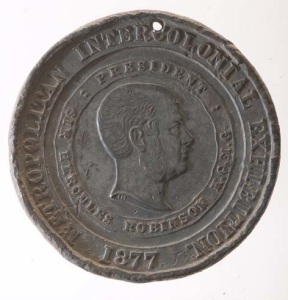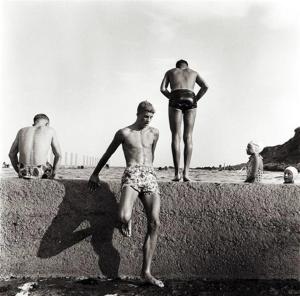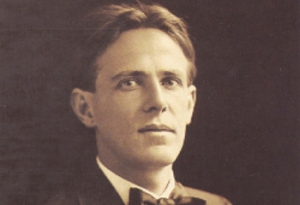Tags
aristocratic names, Biblical names, controversial names, Dutch names, english names, famous namesakes, fictional namesakes, germanic names, Greek names, hebrew names, Irish names, Latin names, locational names, middle names, mythological names, name history, name meaning, names from movies, names from television, nicknames, Old Gaelic names, Old Norse names, Roman names, royal names, royal titles, saints names, Scottish names, Shakespearean names, surname names
The most popular boys names of the 1950s were Peter, John, Robert, and David, but what were the least popular names? Here are ten names which were only chosen once in any year between 1950 and 1959 in South Australia, making them unique names for their time and place. They are still interesting, and one or two really quite daring.
Blaine
Scottish surname which comes from the Old Gaelic Mac Gille Blaan meaning “follower of St Blaan”. St Blaan (or Blane) was a 6th century Scottish monk who was educated in Ireland and became a bishop in Scotland among the Picts. He must have been popular in his time, as there are so many Scottish towns named in his honour, such as Strathblane. The meaning of his name may be from the Old Irish for “thin, lean”. The name would have been well known in the 1950s from classic 1942 film Casblanca, starring Humphrey Bogart as nightclub owner Rick Blaine: his cynical exterior hides a heart of gold, and he makes a heroic sacrifice. In the 1950s Blaine was a bad-boy yet good-guy name, and today also manages to straddle this romantic divide, sounding similar to tough-guy names like Blade, but fitting in with familiar names like Blair and Blake.
Cormac
Irish name. The original form was Corbmac which seems to mean “son of the wheel” in Irish Gaelic, so is often glossed as “son of the charioteer”. However it could also be understood as “son of the raven”, which might tie the name to the god Bran. Another mythological connection is that Corb was one of the Formorians in Irish legend: these ancient beings were giants and forces of destruction, but Corb was worshipped as a tribal god. It’s possible that Corbmac meant “son of Corb”, perhaps to denote strength, or a tribal relationship. Cormac mac Airt was a legendary High King of Ireland; the story goes that he was raised by wolves, but nevertheless proved a wise, brave, and just ruler. Cormac is a handsome Irish heritage choice which offers fashionable Mac as the nickname.
Crispin
Derived from the Roman family name Crispus, meaning “curly-haired”. The name has become famous because of the saints Crispin and Crispinian, venerated as 3rd century martyrs. According to legend, the saints were twin brothers born to a noble Roman family who fled persecution to northern France. They preached Christianity by day, and by night made shoes; through their sleepless industry they earned enough to help the poor. Their life of hard work and charity irritated the governor enough that they were martyred for their faith. According to English folklore, the twins were British princes who ended up as shoemakers in Faversham, Kent. The English version doesn’t include the saints getting martyred, feeling it a bit of a downer ending, even though without the martyrdom they’re not saints but just a pair of old cobblers. The Battle of Agincourt took place on the saints’ feast day, October 25 1415, which England won, celebrated in a stirring speech in Shakespeare’s play Henry V. There have been numerous other battles on St Crispin’s Day – on this day in 1944, American and Australian forces won the Battle of Leyte Gulf in the Pacific. A famous namesake from this decade was Sir Crispin Tickell, one of the famous Huxleys, who first became a British diplomat in this era; today Sir Crispin is an advocate for the environment, perhaps inspired by his work in Antarctica in the 1950s. An elegant upper class but rather crunchy sounding name.
Hercules
Latinised form of the Greek name Heracles, meaning “glory of Hera“, after the queen of the gods who was the wife of Zeus. In Greek mythology, Hercules was a divine hero, the son of the god Zeus and the mortal Alcmene, a grand-daughter of the hero Perseus. Hercules might have been named in honour of the goddess Hera, but she took a dislike to him before he was even born, by ruining a prophecy that he would be ruler. Heracles grew up to be of prodigious strength, and was also quick-witted and playful. He used his gifts to benefit mankind, establishing the Olympic Games, and creating the Pillars of Hercules in the Strait of Gibraltar to protect sailors. Hercules is famous for his Twelve Labours, spectacular feats of strength and cunning which defied his enemy Hera. Being a divine hero, he had to have a tragic death, and on his funeral pyre all that that mortal in him was burned away, so that he could join the gods: he is set among the stars as a constellation. Hercules has been used as an English name since at least the 16th century, and a famous namesake is Sir Hercules Robinson, a Governor of New South Wales. A favourite character in popular culture, Hercules has recently featured in several films, and made an appearance on the TV series Once Upon a Time. Still in occasional use, this is a powerful and eye-catching name.
Prince
English title for a ruler, or a male member of the royal family. The word comes from the Latin primo, meaning “chief, most distinguished”. As a first name, Prince has probably been influenced by the surname, given as a nickname to those who behaved in a regal manner. The surname originated in Yorkshire, and has been used as a personal name since the 17th century. A famous early namesake was Prince Hall, an English-born 18th century African-American abolitionist who worked towards gaining civil rights for black Americans. The name is probably best known in Africa and the African-American community, and a famous contemporary namesake is pop icon Prince (born Prince Nelson), who passed away this year. A blue-blooded name for those born to the purple, Prince may be hard to get past current Australian birth registries as it’s a title, but its use in the 1950s provides some legal justification for those trying to register it (was it used in this decade in honour of the young Prince Charles?). It will be interesting to see if Prince’s death boosts the name.
Roscoe
English surname which comes from a place name in Lancashire; it’s from the Old Norse meaning “roe buck thicket, deer woods”. The surname not only originated in Lancashire, but is still concentrated in that area today in England. It has been used as a personal name since the 18th century, and does show some association with the Lancashire region, although the name is more popular in the United States. Roscoe was the real name of silent film comic “Fatty” Arbuckle, but the name has quite often been used as a nickname for men. The inspiration for this decade may have been the South Australian cricketer Arthur Richardson, whose nickname was “Roscoe”; a forceful player in his youth, by the 1950s he was a cricket selector and coach known for his strong moral code. Roscoe is a surprisingly hip-sounding vintage name, with both charm and a certain gruff strength to it.
Saul
Hebrew name meaning “asked for, prayed for”. In the Old Testament, Saul is the first king of the Kingdom of Israel, anointed by the prophet Samuel. Tall and good-looking, Saul was a successful military leader, however his disobedience towards Samuel as God’s representative was punished by some sort of madness. Modern psychologists have generally diagnosed him as bipolar, and the Bible certainly depicts him as being very paranoid towards his rival, the hero David. His paranoia was perhaps justified though, as David did become king after Saul’s suicide in battle. In the New Testament, Saul was the original Hebrew name of St Paul. Saul has been used as an English name since at least the 17th century, and seems to have been a Puritan choice. We often think of it as particularly Jewish, remembering famous Jewish namesakes such as Nobel Prize-winning author Saul Bellow and artist Saul Leiter (both successful in the 1950s). However, the name is popular in Spain and Mexico, so it’s also Hispanic. In fiction Sauls tend to be baddies, and there is something rather gloomy about this name, although serious and distinguished.
Siegfried
Germanic name usually translated as “peaceful victory”. In German legend, Siegfried is a hero in the medieval epic poem The Nibelungenlied (“Song of the Nibelungs”). Siegfried is a prince who wins a great treasure and slays a dragon before bathing in its blood. The blood makes him invincible, but during the process a leaf fell on to his back, and he remained vulnerable on this point. He also had an invisibility cloak which gave him the strength of twelve men, so it was hardly a fair fight any time he went into battle. Many more adventures follow, including beating a woman into submission on her wedding night, and it barely comes as a surprise when someone murders him by attacking his fatal weak spot. Richard Wagner wrote a cycle called The Ring of the Nibelung, with Siegfried getting his own opera; he also named his son Siegfried. In Germany, the name Siegfried was in use from the Middle Ages, favoured by royalty and nobility. It only came into use as an English name in the 19th century, after Wagner’s opera – the World War I poet Siegfried Sassoon was named after the operatic hero. However, Siegfried is also the love interest in Swan Lake, and as the ballet was staged several times in Adelaide during the 1950s, this romantic prince may have been the inspiration. A grandiose literary name that comes with the friendly nicknames Ziggy and Freddie.
Torquil
Anglicised form of Torcuil or Torcall, Scottish form of the Old Norse name Þórketill, meaning “Thor‘s cauldron”. Torquil has been in use in Scotland and Ireland since the Middle Ages, and there have been several Scottish clan chiefs with the name. Torquil MacLeod was the founder of the McLeods of Lewis, and the name seems to have been a particular favourite in the Hebrides; one of his clan was Torquil McLeod from Tasmania, who served at Gallipoli in World War I and in the Middle East during World War II. Torquhil Campbell is the current Duke of Argyll in the Scottish peerage, and the name is strongly associated with the upper classes. The name got a slight boost in the 19th century from Sir Walter Scott’s historical novel The Fair Maid of Perth, which has a man named Torquil of the Oak defending his chief in battle. An inspiration for this decade was the classic 1945 film I Know Where I’m Going, with Torquil MacNeil as the romantic Scottish laird, played by Roger Livesy who toured Australia in the 1950s. Contemporary namesakes include actor Torquil Neilson, who was in Love and Other Catastrophes and The Secret Life of Us, and architect Torquil Canning, part of the famous Canning family. An aristocratic Scottish choice linked to a powerful god.
Van
Short form of names with VAN in them, such as Evan, Ivan or Vance, or used to honour a Dutch family name beginning with Van, such as Van Buren or Vanderbilt – in these cases, the Van part of the name simply means “of, from”. Van was in use as an independent name by the 19th century. Famous namesakes from the 1950s include Hollywood star Van Johnson (Van was one of his middle names), known for such films as Brigadoon and The Last Time I Saw Paris, and actor Van Heflin (short for his middle name Evan), who was in the 1953 film Shane. Today it is probably best known from the Irish singer Van Morrison (short for his middle name Ivan). This vintage-style nickname is now extremely hip, and gaining in popularity.
POLL RESULTS
People’s favourite names were Cormac, Blaine and Roscoe, while their least favourites were Siegfried, Hercules and Prince.
(Picture shows a medal from the 1877 Sydney Metropolitan Intercolonial Exhibition with an engraving of Sir Hercules Robinson on it; photo from Museum Victoria)










